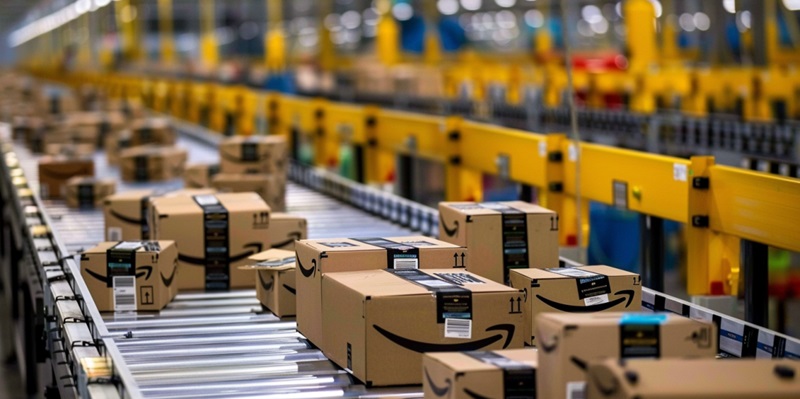At the heart of Amazon’s latest venture is Project P.I. (Private Investigator), a pioneering approach incorporating artificial intelligence to uplift product quality and advance sustainability initiatives. This cutting-edge system, leveraging both generative AI and computer vision technology, scours items within Amazon’s fulfillment centers, identifying potential defects before they can disappoint customers. Project P.I. is more than a quality assurance mechanism; it’s a testament to Amazon’s relentless pursuit of exceptional customer service and its unwavering commitment to ecological responsibility.
The Genesis and Goals of Project P.I.
The Inception of Project P.I. and its Technological Foundations
Project P.I. symbolizes a transformative stride in Amazon’s quest for quality control. With a foundation grounded in state-of-the-art generative AI fused with sophisticated computer vision, it represents an evolution in identifying and addressing product flaws. This initiative strategically targets the inspection process, exhibiting an unprecedented level of scrutiny that detects issues ranging from minute damages to color and size inconsistencies. Project P.I. is not just about spotting defects but about enhancing the overall integrity of Amazon’s vast supply network.
Operational Strategy: The Imaging Tunnel
Central to Amazon’s operational blueprint is the deployment of its ‘imaging tunnel.’ Describing a futuristic pathway through which goods are assessed, this technological marvel allows Project P.I. to meticulously inspect every item passing through Amazon’s fulfillment centers. Once the system identifies a potential defect, human judgment comes into play. Specialists then meticulously analyze these flagged items, determining their path forward, including potential resale through discounted channels, donations, or alternative repurposing.
Impact on Customer Satisfaction and Sustainability
Enhancing the Customer Experience through Meticulous Inspection
The ripple effect of Project P.I. resonates profoundly with customer satisfaction. By deploying AI-driven imaging processes, Amazon marks a significant drop in the rate of damaged goods reaching consumers. This meticulous inspection means shoppers are more likely to receive products in impeccable condition, confirming Amazon’s promise of a seamless shopping experience. Trust in consistent quality becomes the norm, not the exception, for patrons of the online retail giant.
Environmental Stewardship through Technological Advancement
Project P.I. is instrumental not just in fortifying consumer trust but also in shouldering Amazon’s environmental pledges. By intercepting substandard items pre-shipment, the company reduces wasted packaging, lessens returns-related carbon emissions, and highlights its commitment to sustainable commerce. Amazon’s leaders herald this intersection of quality and sustainability as a guiding principle, ensuring that advances in technology go hand-in-hand with environmental stewardship.
Leveraging AI to Analyze Feedback and Improve Service
A Multi-Modal LLM System for Customer Feedback Analysis
Complementing Amazon’s sustainability efforts is their Multi-Modal LLM generative AI system, employed to mine negative feedback for actionable insights. By cross-referencing customer comments with images from fulfillment centers, this system identifies errors, such as packaging mishaps, which might otherwise tarnish the user experience. Such insights are a boon, particularly for the vast network of small and medium businesses affiliated with Amazon, providing them with invaluable analytics to remedy issues effectively.
Empowering Businesses and Driving Innovation
The analytics derived from Project P.I. are a wellspring of knowledge for Amazon’s partnered businesses, empowering them to tackle defects head-on. In doing so, they not only elevate their quality control standards but also foster ongoing innovation. The AI-driven solutions of Project P.I. thus serve as a beacon, compelling businesses to evolve and adapt in an environment where quality is synonymous with the brand experience.
The Future of Project P.I. and Amazon’s Fulfillment Network
Expansion Plans and the Pursuit of Perfection
With plans already set to roll out Project P.I. across more North American fulfillment centers through 2024, anticipation builds for the enhancements it will bring to quality control processes. This strategy not only signifies advances in AI and product assurance but also Amazon’s determination to pursue perfection in its fulfillment operations. Customers can look forward to even higher standards of service delivery, manifesting the promise of a future where excellence is engrained in every package.
Project P.I. as a Beacon for Industry Standards
Amazon’s Project P.I. (Private Investigator) is a groundbreaking initiative that merges artificial intelligence with a mission to enhance product quality and bolster sustainability efforts. This advanced system utilizes generative AI coupled with computer vision to meticulously inspect products within Amazon’s expansive fulfillment centers. It swiftly detects and addresses defects, preventing any chance of customer dissatisfaction. Project P.I., however, transcends traditional quality assurance roles. It epitomizes Amazon’s dedication to delivering outstanding customer experiences and solidifies the company’s firm commitment to environmental stewardship. By proactively detecting issues before they reach the consumer, Amazon redefines the role of AI in quality control and demonstrates its commitment to a future that’s customer-focused and environmentally conscious.

